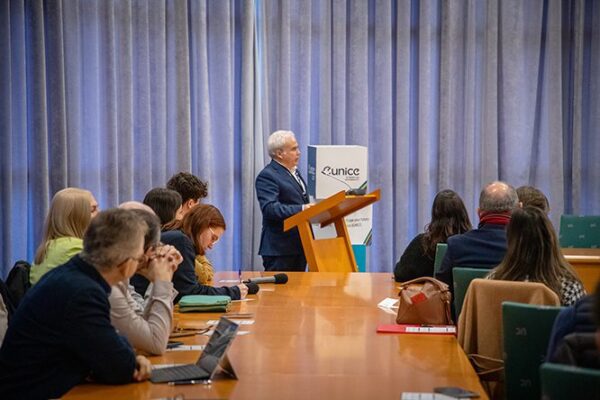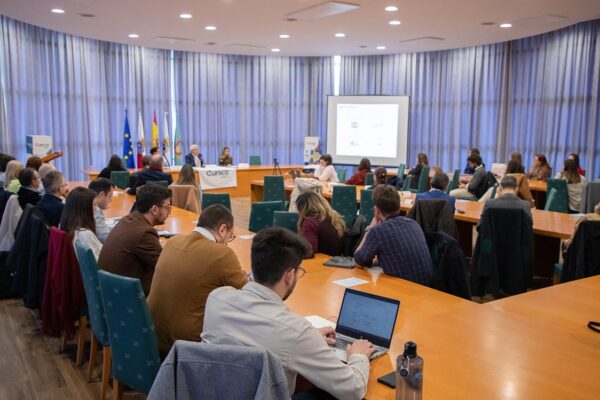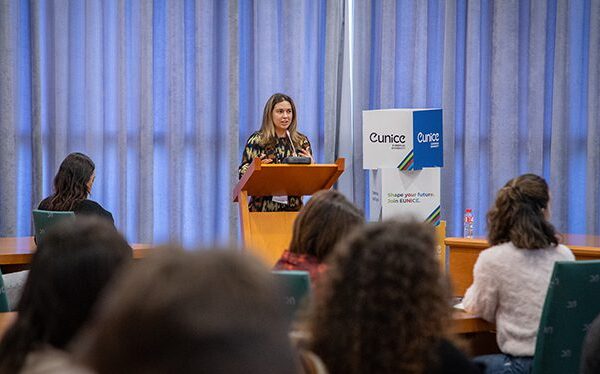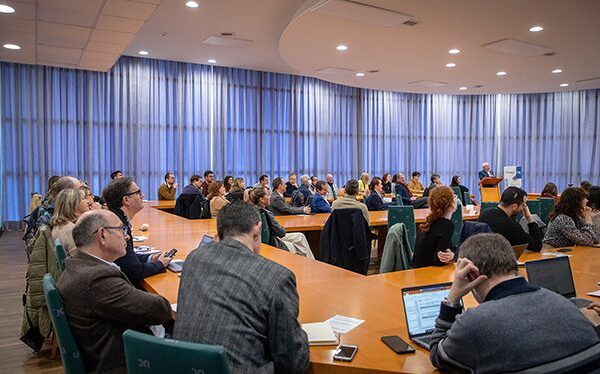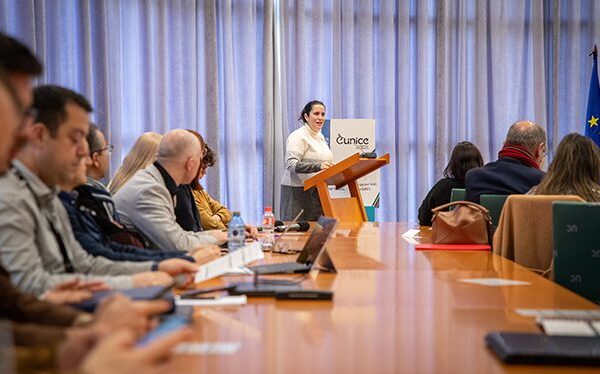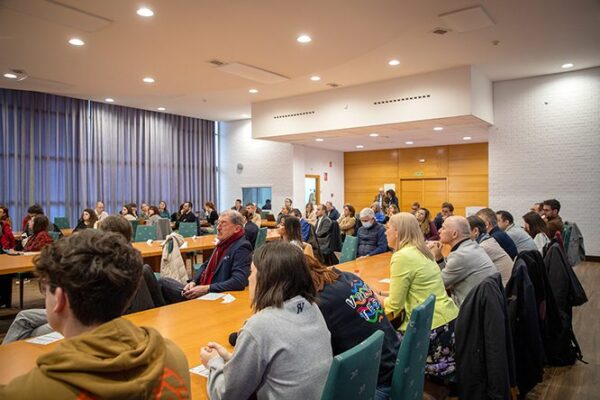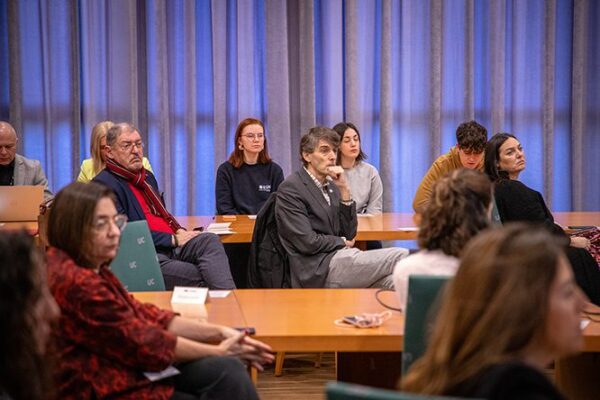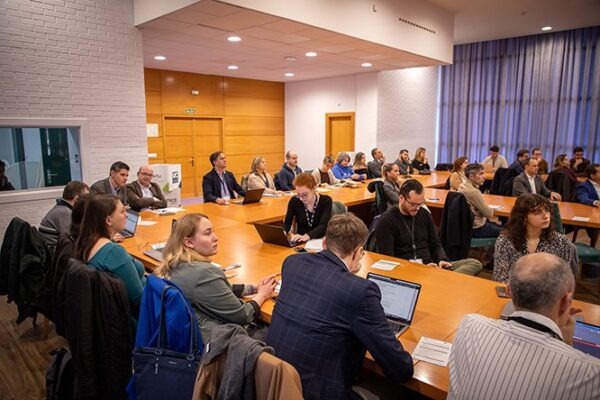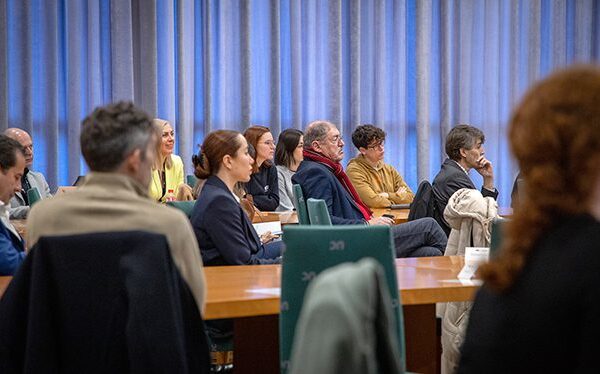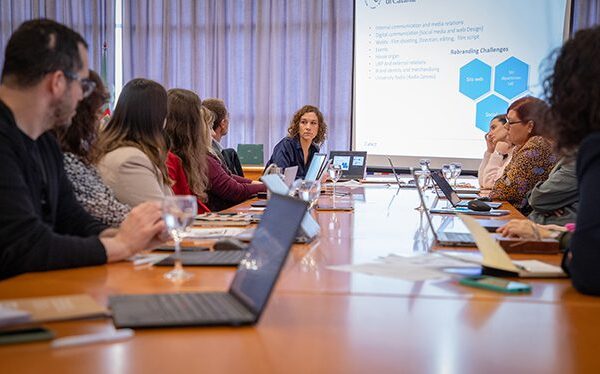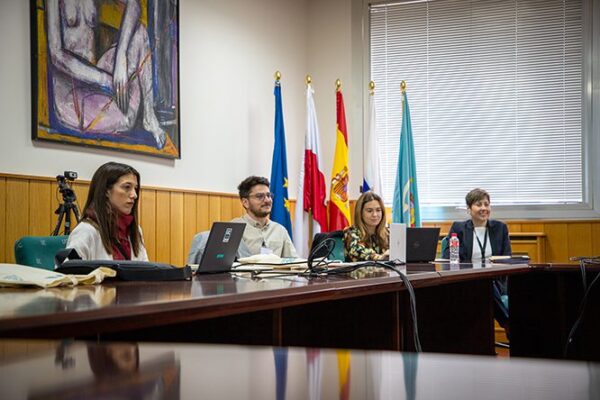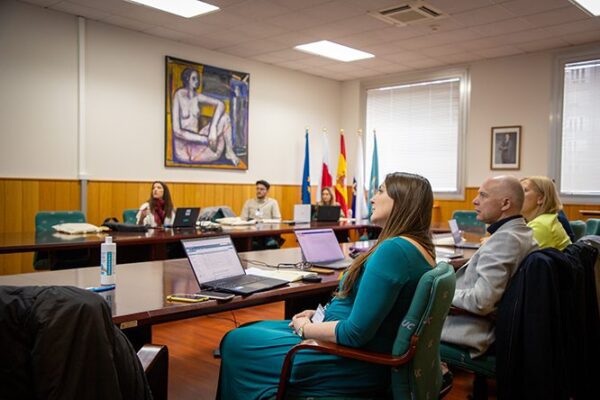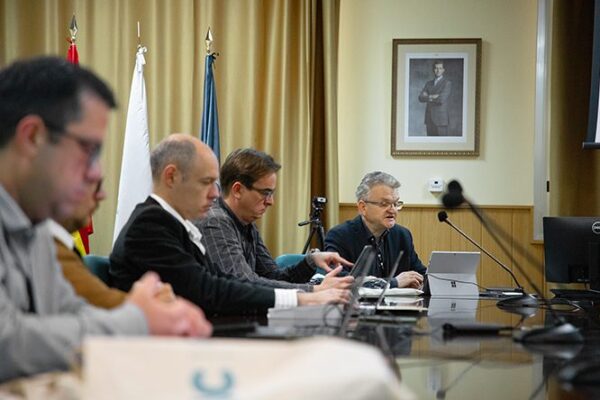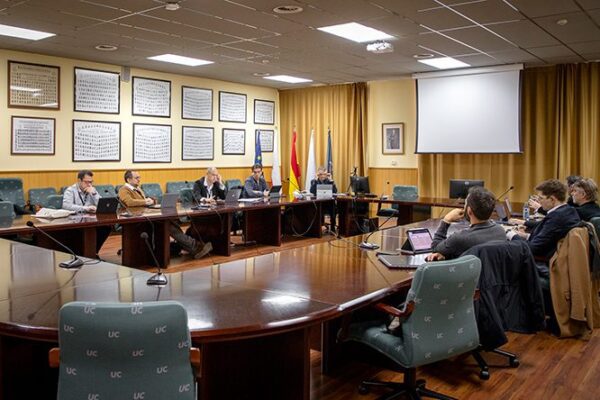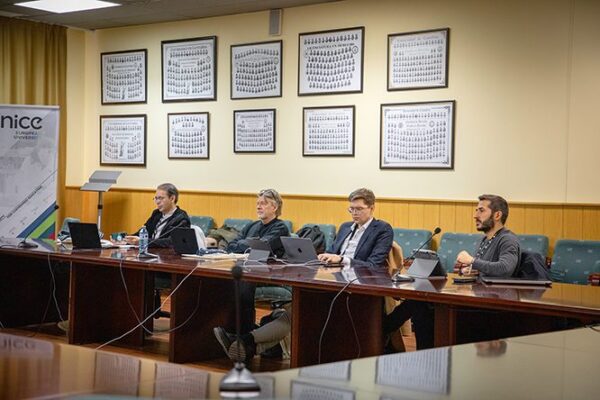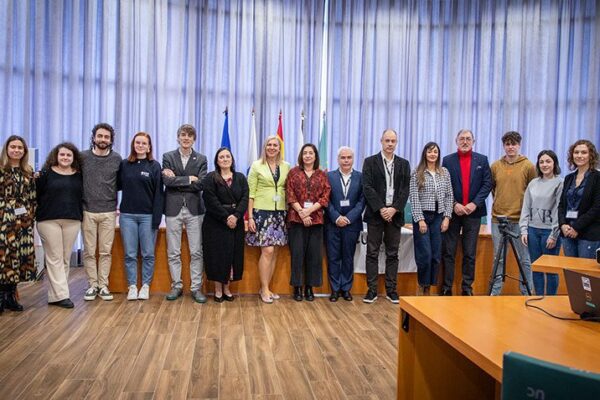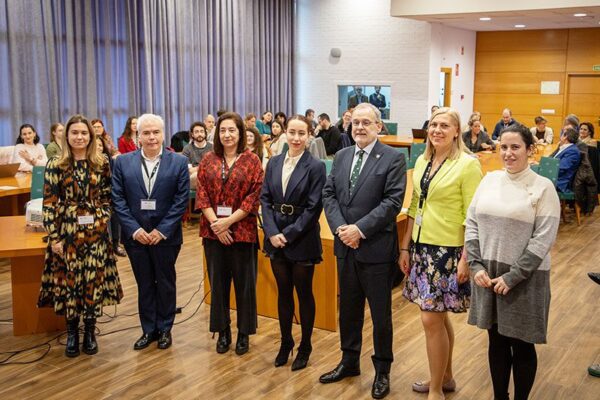Ángel Pazos, Rector of the University of Cantabria, highlighted the importance of building support services to uphold the growth of EUNICE European University
2023-2027 plan of EUNICE European University encompasses three major transformative lines of action in higher education: the development of a joint academic and skills training offering; the promotion of experiential learning and mobility for students, staff, and academics; and the convergence of the university, business, and society through research. This was announced during the opening of the Kick-Off Meeting on Communication, Digitalisation, and Impact of EUNICE, which the University of Cantabria (Santander, Spain) hosted as the coordinator work package 5.
UC Rector Ángel Pazos, Marta García, Director General of European Funds of the Government of Cantabria, and Magdalena Sikorska, Secretary-General of EUNICE, inaugurated the sessions. Representatives of the EUNICE Student Advisory Board, the Directors of Marketing and Communication of the partner universities and UC associated partners in the EUNICE consortium, including the Government of Cantabria, Banco Santander, Santander City Council, UIMP, Solvay Quimica, the European Student Network and the Secretariat of the Gypsy Foundation, also attended.
Pazos emphasised that “EUNICE is the great project of future of the University of Cantabria,” adding that “now that the project has been extended for another four years, it is essential to grow to the next level by making building EUNICE transversal structures.”
Until 18th January, around thirty representatives from the ten member universities deliberated and planned actions to implement during the new project such as the digitalization of academic processes, the external engagement or the impact evaluation. These departments, along with management, support the academic, research, institutional, and student activities at the European University EUNICE.
About EUNICE
The European University for Costumised Education (EUNICE) was created in 2020 as a transnational alliance with a transformative higher education agenda: the focus remains on creating synergies, connecting European regions, and playing a pivotal role in empowering these regions through collaborative innovation and the development of globally competent professionals poised to drive local growth. Currently ten public universities are part of the consortium: Brandenburg University of Technology Cottbus-Senftenberg (BTU), University of Cantabria (UC), University of Catania (UNICT), Université Polytechnique Hauts-de-France (UPHF), Karlstad University (KAU), University of Mons (UMONS), University of Peloponnese (UOP), Poznan University of Technology (PUT), University of Vaasa (UVA) and Polytechnic Institute of Viseu (IPV).
The new EUNICE work proposal until 2027 is funded by the European Commission for more than 14.4 million euros and is based on the values of innovation, sustainability and inclusion.


